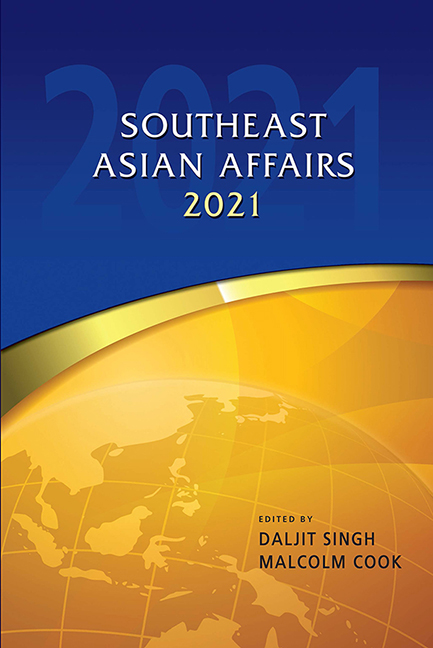Brunei Darussalam in 2020: Enduring Stability of a Small Monarchical State in a Turbulent Year
Published online by Cambridge University Press: 09 October 2021
Summary
As one of the smallest states in Asia, Brunei Darussalam has demonstrated an enduring stability amidst a turbulent global pandemic in 2020. Though the COVID-19 pandemic proved to be Brunei's sternest test in decades, the country appears to have come through it relatively unscathed, and at the end of 2020 was preparing for a post-pandemic period, including assuming the ASEAN chairmanship in 2021. Brunei in 2020 illustrated the resilience of a monarchy of a small state supported by a largely contented society, with the domestic social compact between the government and its people intact.
The Social Contract Imperative
The social contract tradition in political philosophy refers to the tacit agreement between a ruling government and a ruled society in which social benefits are provided by the state in return for some restrictions on individual freedom. The social contract in contemporary times is often based on trust and cooperation, in what is also described as accumulating social capital—the greater the social capital, the stronger the social contract. For policymaking purposes the social contract is more commonly described in many countries as the social compact. It is seen as a centrepiece of state-society relations, with the government as the interlocutor, and is integral to legitimizing the authority of a government over the citizenry within state boundaries. The stronger the social compact, the greater the legitimacy of the government.
The adhesive that has long held Brunei together is the social contract between its government and society underpinned by Malay cultural traditions and Islamic principles, encapsulated in the ideological trinity of Melayu Islam Beraja (MIB, or Malay Islamic Monarchy). To this end, the kingdom, under the reign of the present sultan, Sultan Hassanal Bolkiah, provides extensive social welfare for its people such as in education and healthcare, with them paying virtually no tax. This helps preserve the social compact by keeping the society contented with, and pragmatically accepting of, monarchical rule alongside the cultural rationale of reverence for the monarchy. This social compact undergirds Brunei's strategic culture, which continues to be defined and moulded by the MIB.
Apart from sporadic instances of youth restiveness, it was the battle against the COVID-19 pandemic that proved to be the sternest test for the monarchy-led Bruneian government in sustaining the social compact throughout 2020.
- Type
- Chapter
- Information
- Southeast Asian Affairs 2021 , pp. 55 - 70Publisher: ISEAS–Yusof Ishak InstitutePrint publication year: 2021

